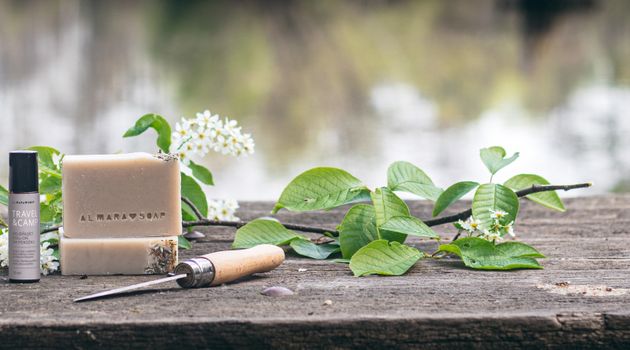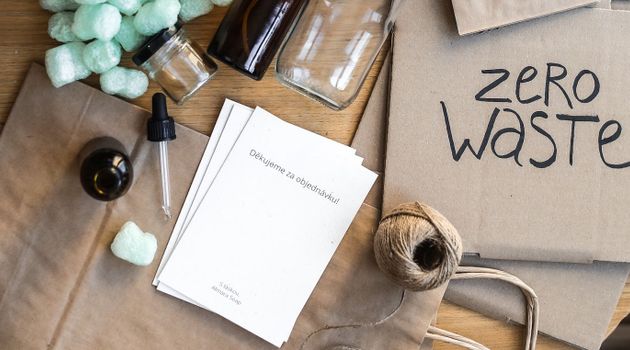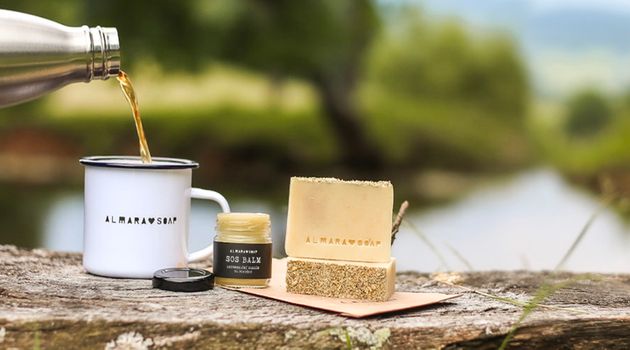The trendy scarecrow called palm oil
Palm oil automatically falls into the "bad boys" category for many people, as we are bombarded with information about how bad its use is. However, every coin has two sides, and it greatly depends on where and how the palm oil was sourced. You know what they say about not judging at first glance? Sometimes it pays to dig a little deeper and not believe everything you hear. Let’s discuss a few reasons why we use palm oil in our soaps, and you might reconsider your opinion on it.

Traditional Soap Making
Palm oil has been used in soap making for over 100 years, and it’s no coincidence. It provides the soap with optimal hardness, durability, and its presence in the soap ensures proper effects on the skin. Some manufacturers try to bypass the use of palm oil by increasing the ratio of other oils or butters. However, such soaps can dry out the skin, take a long time to dry, and become mushy and unusable. Omitting palm oil in soap production negatively affects their functionality and properties, so this step needs to be carefully considered.
Ethical Sourcing of Palm Oil
At Almara Soap, we want to create soaps that properly nourish the skin and handling them will be a joy rather than a necessary evil. For these reasons, we have not eliminated palm oil from our products, but instead ensured its quality and sustainability. In our soaps, you will find only certified RSPO palm oil, sourced from ethical origins.
RSPO Certification
The RSPO certificate was created in 2008 and identifies palm oil that comes from sustainable sources and meets strict environmental protection criteria. Under the logo of the green palm leaf, you will find products that not only do not burden and threaten local fauna and flora but also support local producers and reduce poverty levels throughout the region. RSPO ensures the ecological growth of oil palms, harvesting, land management, and fair treatment of workers. Original plants are not cut down for cultivation; instead, new ones are planted among the palms.
True and valid RSPO certifications can only be achieved under the following models:
- Segregated
This is certified palm oil that is physically separated from non-certified oil throughout the supply chain. With this variant, you can be sure that the purchased product physically contains only certified palm oil. This is exactly what we use in our soaps. - Identity Preserved
Oil that additionally has a verifiable exact origin compared to the previous model. - Mass Balance
Here, it is permitted to mix certified and non-certified palm oil under certain conditions within the supply chain. Better than nothing, but it can certainly be done better.
More about the RSPO certification issue can be found on the official website HERE >>>
More Sustainable Than It May Seem
Growing oil palms from sustainable sources is significantly more friendly to nature than cultivating many other crops that commonly include certain foods or cosmetics that we use daily without thought. Unnecessary plastic packaging or prefabricated ingredients in cosmetic products cause more harm than good.
Therefore, we believe that using an ecological and sustainable variant of palm oil in our production is the most responsible and fair solution for our customers and the Earth.
Cover photo: Photo by Ihsan Aditya from Pexels
Photo of palm: Image by Bishnu Sarangi from Pixabay



